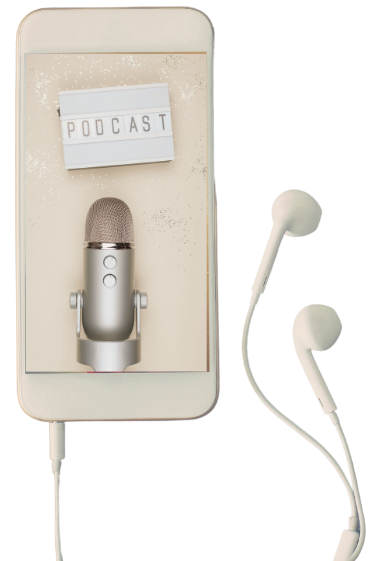episode
#24 Slow Down to Speed Up Your Results
In this week's episode:
Episode 24: Slow Down to Speed Up Your Results
Are you doing everything right with your nutrition but still struggling with weight loss? The problem might not be WHAT you're eating, but HOW FAST you're eating it. In this episode, I reveal why eating speed is the overlooked factor that could be sabotaging your weight loss results and share three simple mindful eating strategies you can start using today.
As someone who has coached women for 13 years, I've seen this pattern with countless clients - women who eat their entire dinner in just a few minutes and wonder why they're still hungry afterward. If you're a fast eater, this episode will be a game-changer for your weight loss journey.
I'll walk you through the science behind why eating too quickly leads to overeating, poor digestion, blood sugar spikes, and weight gain. Then I'll give you three proven strategies that my weight loss coaching clients use to slow down their eating and see better results: the Stopwatch Trick, the 20-Minute Rule, and the Chew Challenge.
What You'll Learn
- Why eating too fast is sabotaging your weight loss efforts (even if your nutrition is perfect)
- The shocking truth about how long it takes your brain to register fullness
- How fast eating leads to overeating, poor digestion, and blood sugar crashes
- Why people who eat quickly are more likely to be overweight and develop metabolic syndrome
- Three simple strategies to slow down your eating without making it complicated
- The connection between eating speed and emotional eating patterns
- How proper chewing improves nutrient absorption and reduces bloating
- Why mindful eating is crucial for long-term weight loss success
Key Moments
The 6-Minute Meal Problem I discovered I was eating my entire dinner in just 6 minutes, which explains why I always felt hungry afterward and would want to go back for seconds.
The 20-Minute Brain Delay Your brain takes 20 minutes from the start of eating to register if you're actually full. If you're finishing meals in 6 minutes or less, your brain hasn't even realized you've started eating yet.
Childhood Fast Eating Patterns Growing up as one of four siblings, I learned to eat fast to get my share of treats like chips and fish and chips. Many women develop fast eating habits in childhood that carry into adulthood.
The Modern Life Rush Factor Busy lifestyles have us eating between meetings, in cars, and rushing through meals. This pace of modern life has dramatically increased how fast we eat compared to previous generations.
Digestion Starts in Your Mouth When you don't chew properly, you're putting too much pressure on your stomach. This leads to bloating, discomfort, reflux, and poor nutrient absorption - even if you're eating healthy foods.
Fast Eating = Blood Sugar Spikes Eating quickly causes faster glucose release into your bloodstream, leading to insulin spikes that make you more susceptible to weight gain and energy crashes.
The Sugar Craving Connection My terrible sugar addiction was partly caused by eating so fast that I never felt satisfied. My body craved something sweet after meals because I hadn't properly enjoyed or registered what I'd eaten.
Strategy 1: The Stopwatch Trick Simply timing how long you eat and gradually increasing it by 30 seconds each time. Work up to 15-20 minutes for at least one meal per day.
Strategy 2: The 20-Minute Rule After finishing your meal, wait 20 minutes before going back for seconds, dessert, or any additional food. Often you'll realize you're actually full.
Strategy 3: The Chew Challenge Aim for 25-30 chews per bite. Even increasing from 10 to 15 chews makes a difference. Chew until food is almost liquid and notice the flavors and textures.
The Chopsticks Hack Using chopsticks naturally slows down your eating. One popular weight loss success story involved someone eating everything with chopsticks to control portion sizes and eating speed.
Screen-Free Eating Avoid screens during at least one meal per day. When you're distracted, you can't be mindful about chewing, timing, or satiety signals.
The One Action You Can Start Now
Time Your Next Meal The very next time you eat, look at your watch and time how long it takes you to finish your meal. If you're shocked to discover you're eating in 6 minutes or less (like I was), start increasing your eating time by just 30 seconds at each subsequent meal. Work your way up gradually until you can eat your main meal in 15-20 minutes.
This simple awareness exercise will immediately show you if fast eating is sabotaging your weight loss efforts. Once you know your baseline, you can start making changes that will help you feel more satisfied, reduce overeating, improve digestion, and finally see the weight loss results you've been working toward.
Remember: You might be doing everything right with your macros, meal planning, and food choices, but if you're eating too fast, you could be undoing all that hard work. Start timing your meals today and watch how this one simple change transforms your relationship with food and accelerates your weight loss results.
Show Links

Never Miss An Episode...
Sign up now to be the first to know when the latest episode is out. Get ready for great weight loss tips, ideas and resources, so you can START NOW and nail your goals!
I RESPECT YOUR PRIVACY. NO. SPAM. EVER








